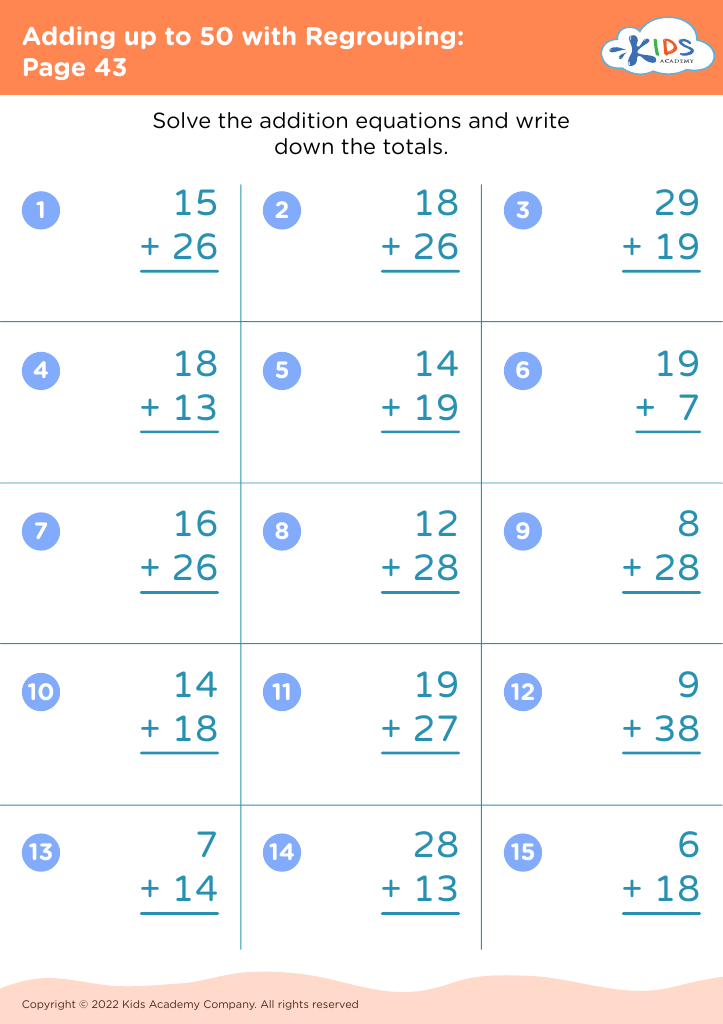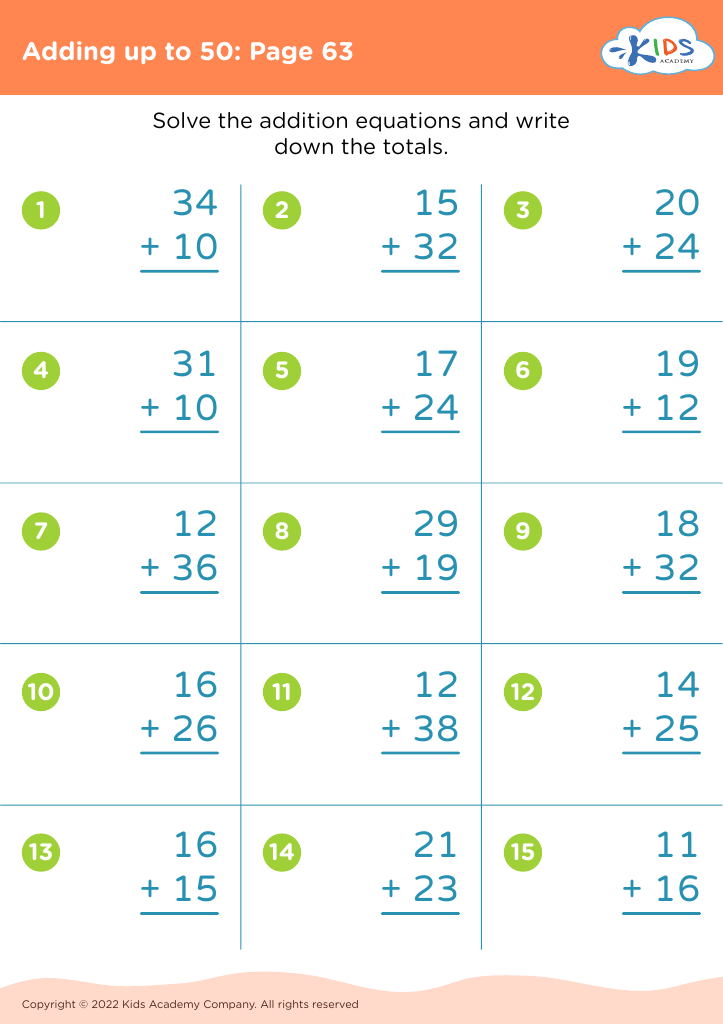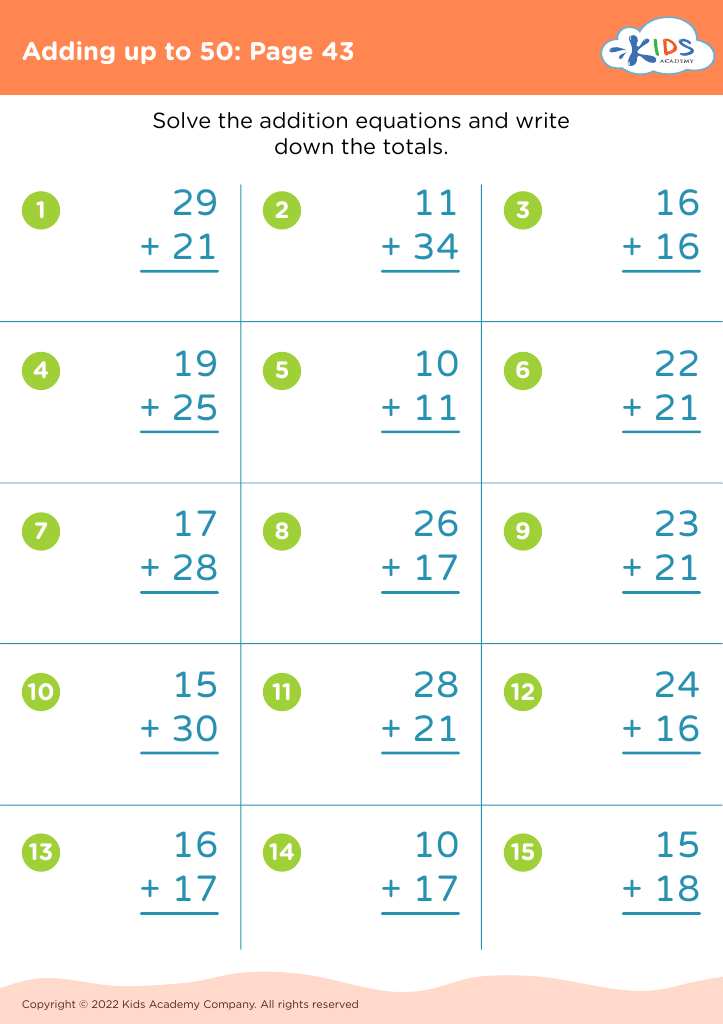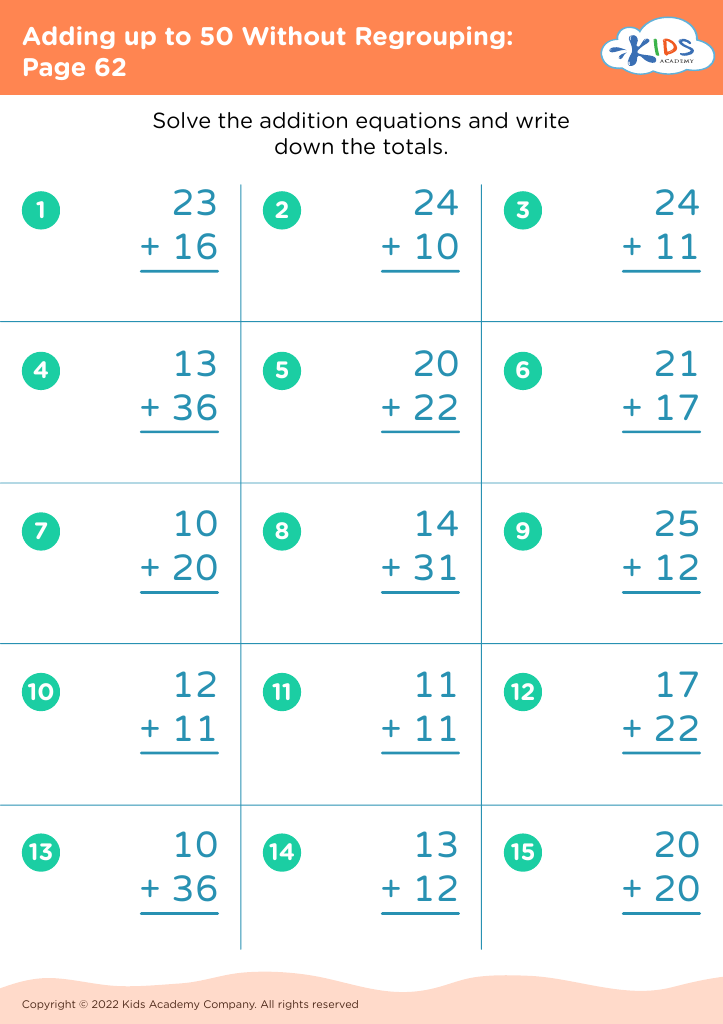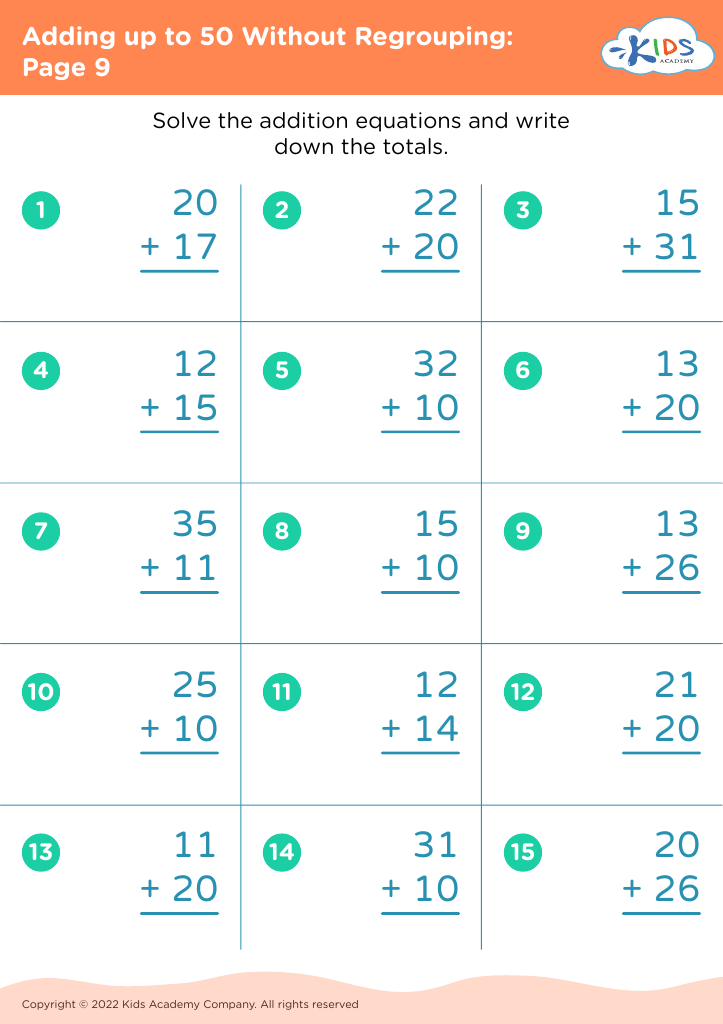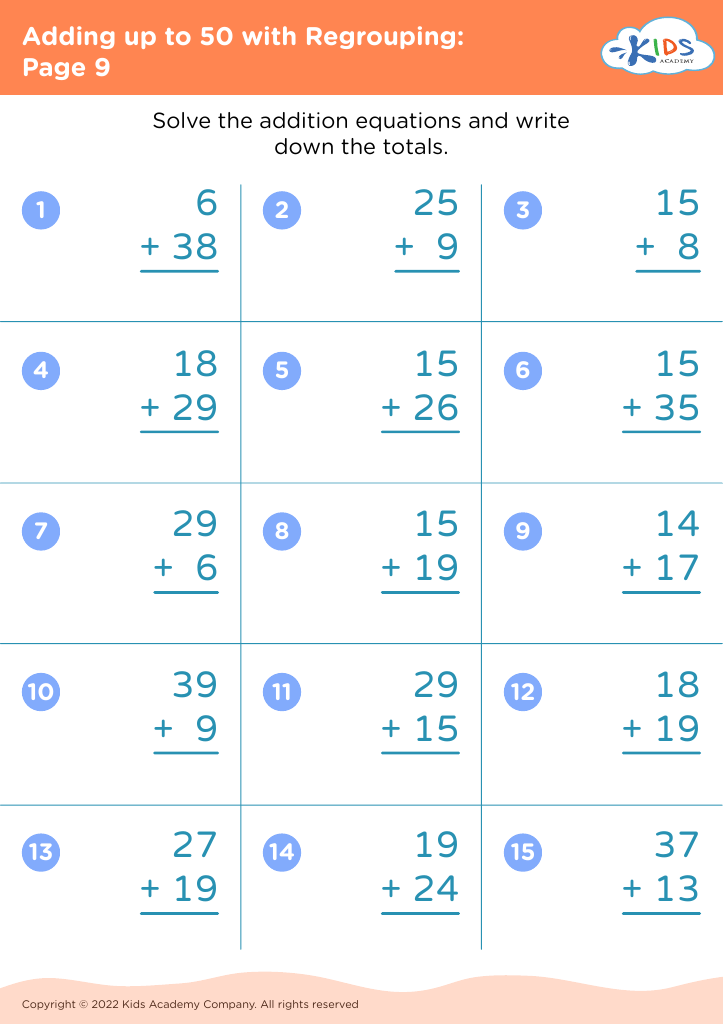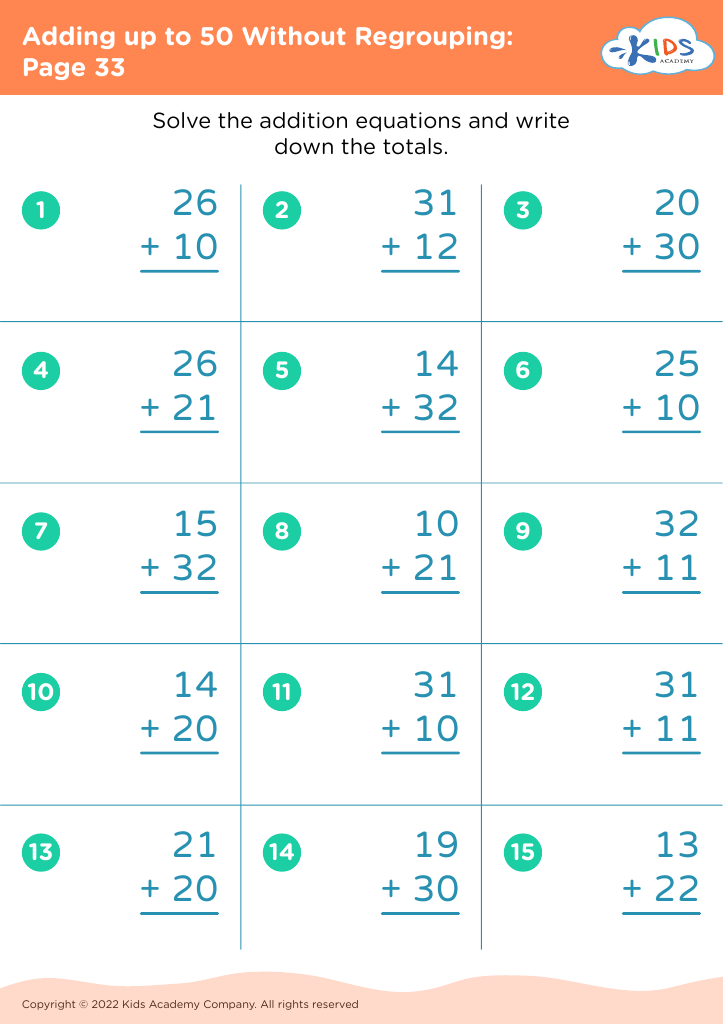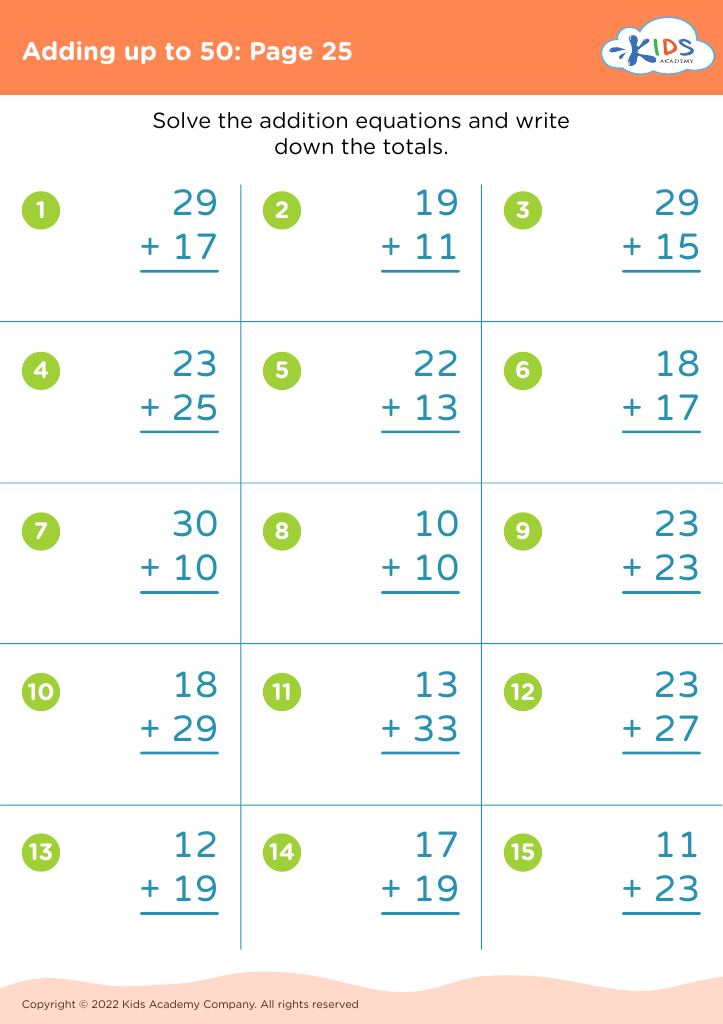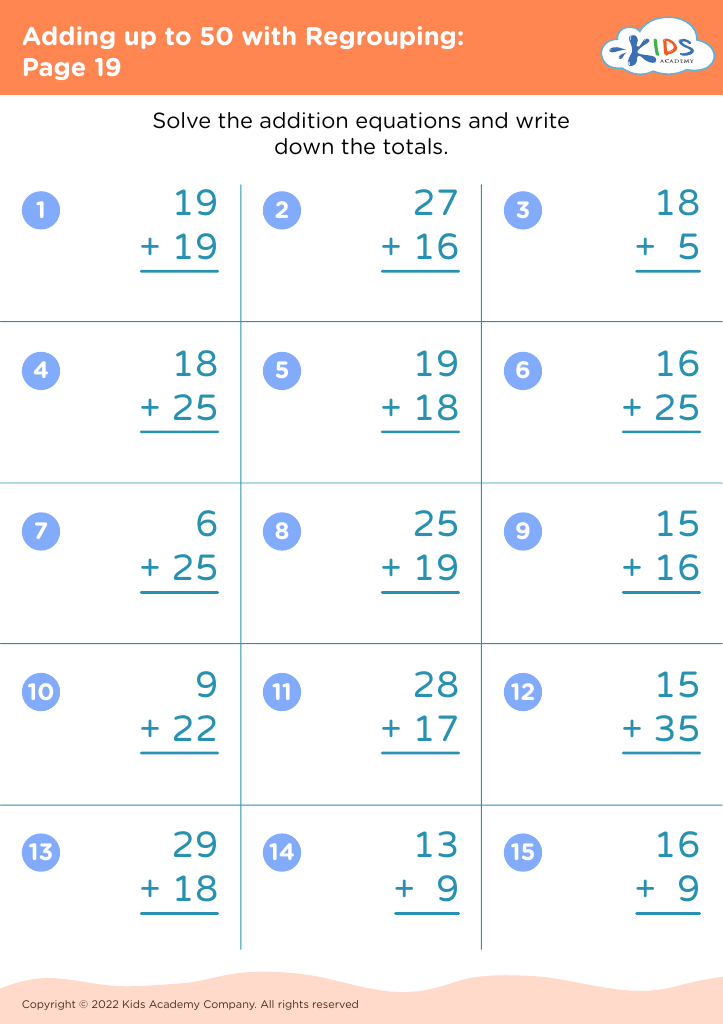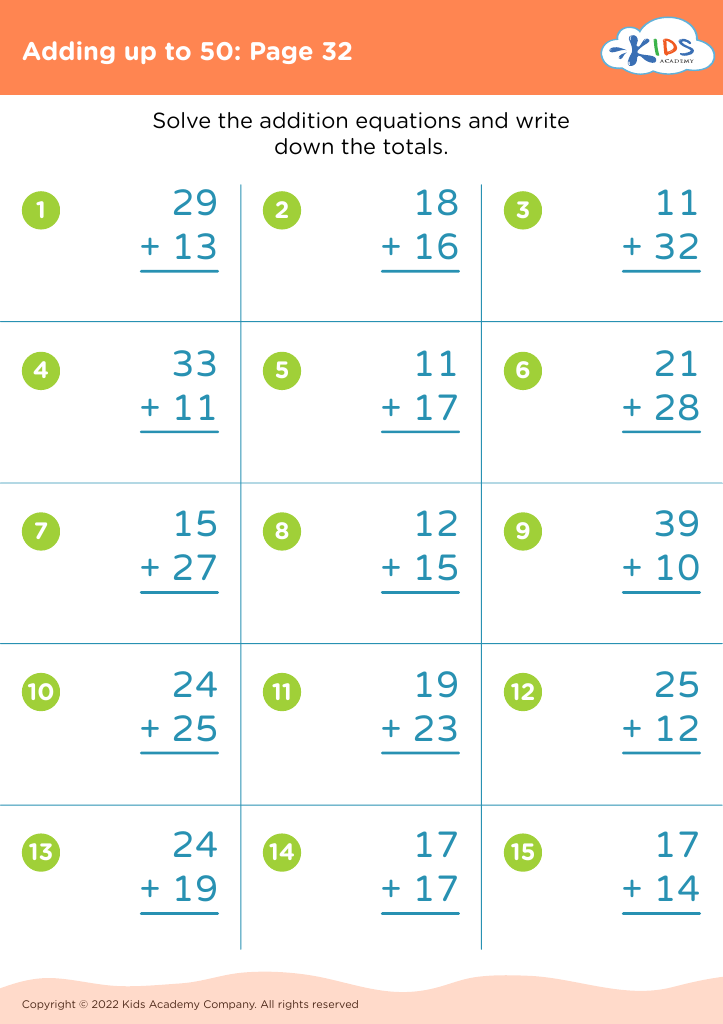Addition Practice Adding up to 50 Worksheets for Ages 5-7
16 filtered results
-
From - To
Our "Addition Practice Adding up to 50 Worksheets" are designed for children ages 5-7 to develop essential math skills. These engaging worksheets help young learners practice addition within 50 through fun and interactive activities. With clear instructions and appealing visuals, children will build confidence and improve their arithmetic abilities. Ideal for both classroom settings and home learning, these worksheets provide ample opportunities for practice, ensuring foundational math proficiency. Teachers and parents can download and print these resources for a variety of customizable learning experiences. Discover the fun way to make addition exciting and effective for your child with our worksheets!
Parents and teachers should care about Addition Practice Adding up to 50 for children aged 5-7 because mastering these skills lays a critical foundation for future math learning and overall academic success. At this developmental stage, young kids are developing fundamental cognitive abilities that underpin more complex mathematical concepts. By focusing on addition up to 50, educators and parents can ensure that children build strong number sense, understand basic arithmetic operations, and develop problem-solving skills.
Consistent practice with addition helps young learners improve proficiency, making later topics like subtraction, multiplication, and division easier to grasp. Moreover, these early math skills are essential for daily life and practical scenarios, such as counting money, measuring ingredients for recipes, or determining time intervals.
In addition, early success in mathematics breeds confidence and a positive attitude toward the subject. Struggling with these concepts early on can lead to math anxiety and a reluctance to engage with future math lessons. Engaging children in addition activities fosters a love for learning and persistence in problem-solving, equipping them with tools necessary for academic achievements beyond mathematics.
Hence, dedicating time and resources to practicing addition up to 50 supports children's long-term intellectual growth, equipping them with essential skills and promoting a positive and confident approach to learning.


